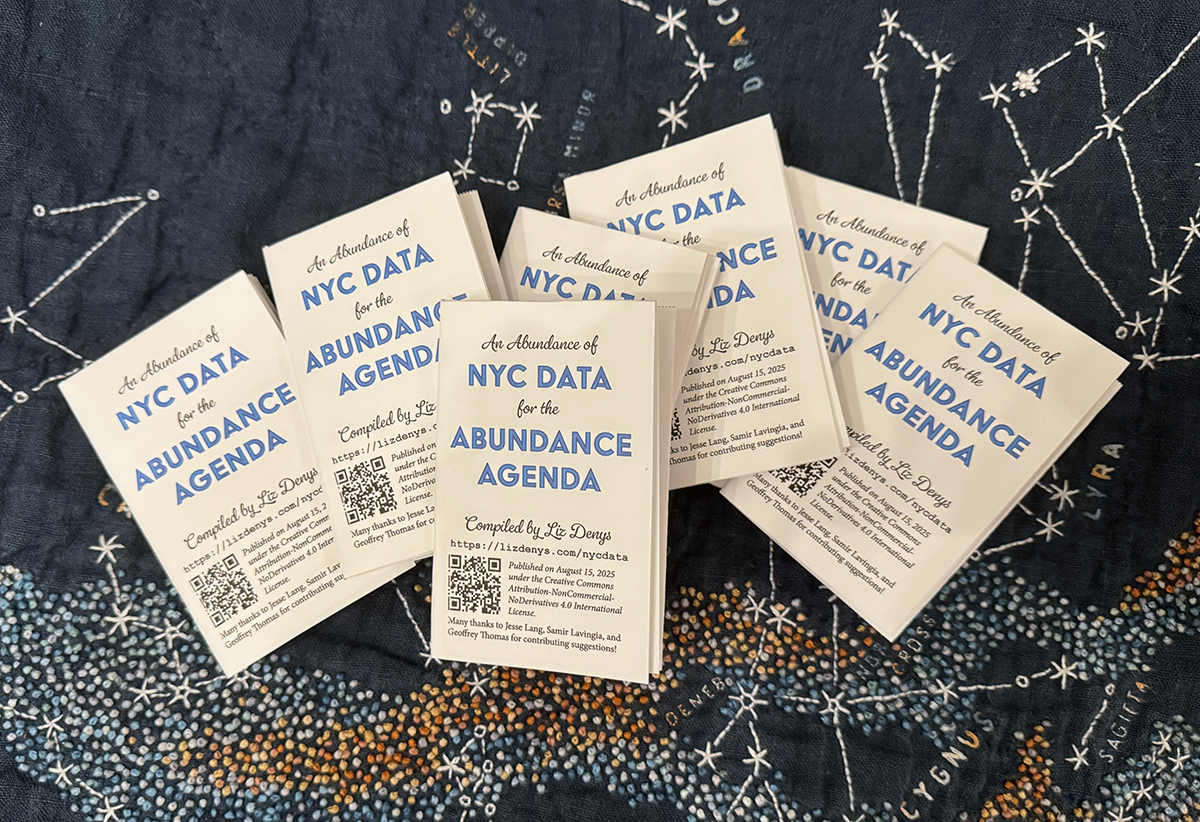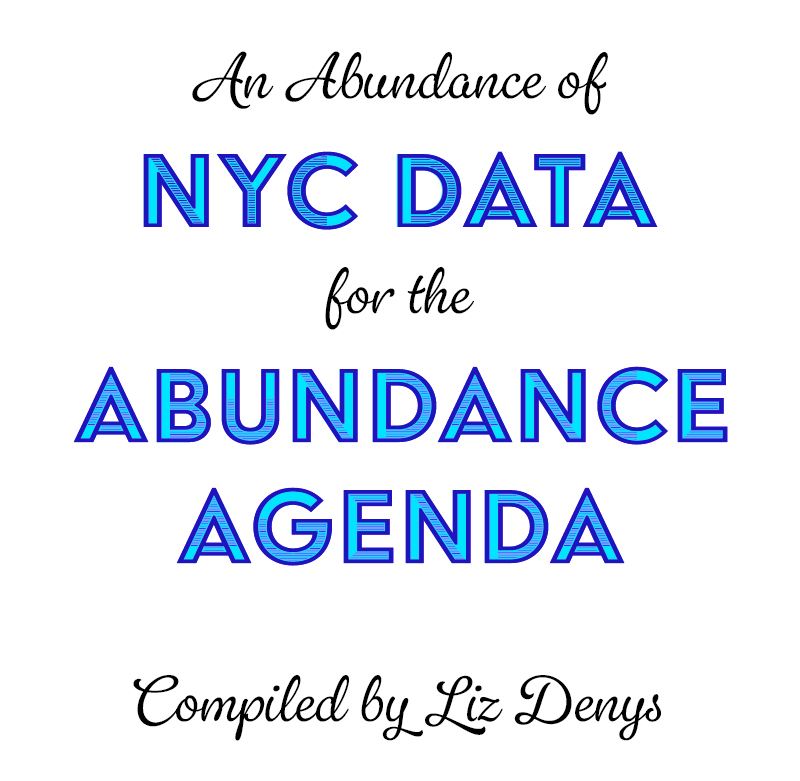An Abundance of NYC Data for the Abundance Agenda is a mini-zine that I made to collect useful data sources for housing, transit, and climate in NYC in one place.

All text in the zine is my own. Many thanks to Jesse Lang, Samir Lavingia, and Geoffrey Thomas for contributing suggestions!
License
This zine is licensed under the Creative Commons Attribution-NonCommercial-NoDerivatives 4.0 International License. You may print, copy, and distribute this zine for noncommercial purposes in its unadapted form that maintains credit to me. Book shops, coffee shops, cafes, and other commercial establishments are welcome to give out these zines, too - as long as the zine itself is free!
Download and assemble An Abundance of NYC Data for the Abundance Agenda
Once you print this mini-zine, you'll need to fold it.
Below is the web version of the mini-zine:

This zine was published on August 15, 2025. Many thanks to Jesse Lang, Samir Lavingia, and Geoffrey Thomas for contributing suggestions!
- NYC HPD & DCP's Equitable Development Data Explorer is a map tool for exploring lots of housing data, including household economic security, housing affordability and quality, and housing production by Community District.
- CoreData.nyc is NYU Furman Center's housing and neighborhoods data hub, which includes city, state, and federal data sources alongside the Furman Center's analysis. The Subsidized Housing Database shows property-level information on subsidized housing in NYC, including subsidy types and start and end dates.
- NYHC's NYC Housing Tracker tracks housing needs and affordable housing production by borough and Council District.
- Transportation Alternatives and MIT's Spatial Equity NYC documents inequities in public space and transportation access.
- NYC DOT's Vision Zero View maps street design and places DOT identified as dangerous.
- CHEKPEDS manages NYC Crash Mapper, which is based on NYPD crash data.
- NYC DCP's Population FactFinder helps you aggregate Census data in NYC-specific ways.
- NYU Furman Center's New York Neighborhood Data Profiles contains demographic, housing market, land use, and neighborhood services indicators.
- You can explore Census Data through the United States Census Bureau's website.
- NYC DCP's Community District Profiles contain relevant data, maps, and resources. Statements of Community District Needs can be found under the Community Board tab.
- ZoLa is NYC DCP's map tool for exploring zoning districts. Click on a district to learn more about what that zoning means.
- NYC DCP's Zoning Application Portal is where you can find the status of zoning and land use applications. FYI there's usually a bit of an update delay.
- Search NYC DCP's City Planning Commission Reports to find previous zoning changes.
- NYSHCR's Rent Registration Data Dashboard visualizes a snapshot of the current submitted status of NYS rent regulated apartments for the past 5 years.
- NYC HPD's Housing and Vacancy Survey is a citywide survey of housing stock.
- JustFix's Who Owns What lets you look up which buildings a landlord might own.
- NYC DCP's NYC Housing Production Snapshot, 2024 summarizes findings from NYC DCP's Housing Database, which catalogs housing construction since 2010.
- The Comptroller's NYC Climate Dashboard tracks progress towards carbon emission reduction goals and neighborhood preparedness for climate change.
- BetaNYC's NYC Boundaries tool helps you find all districts from the local to national level and their overlaps.
- NYC Open Data contains free public data published by city agencies and partners.
Get involved in grassroots advocacy for a better NYC!
- Open New York is working to solve New York's housing crisis by advocating for policy changes to create more housing in every neighborhood!
- Transportation Alternatives is pushing for changes in public policy, street design, enforcement, and resource allocation to make safer, more equitable streets!
- Riders Alliance is fighting for better, more reliable public transit that is affordable for all!